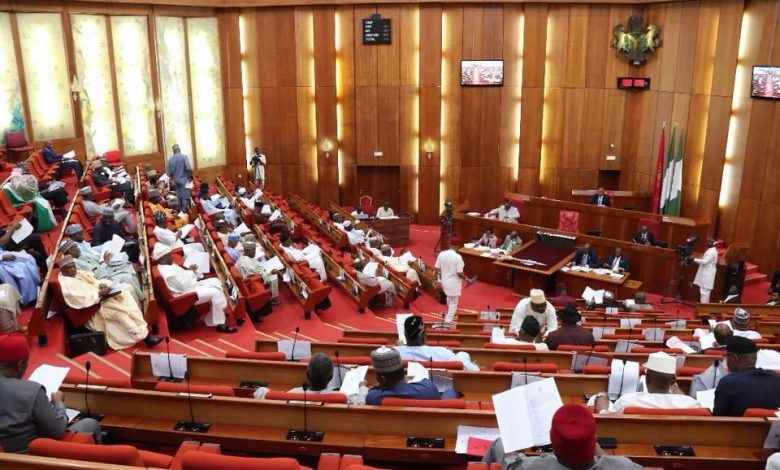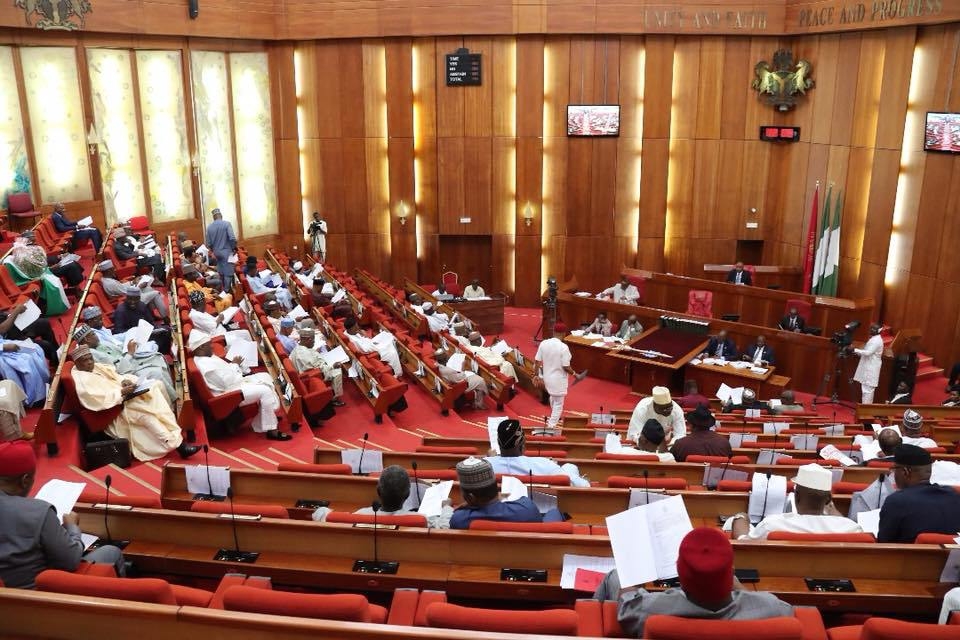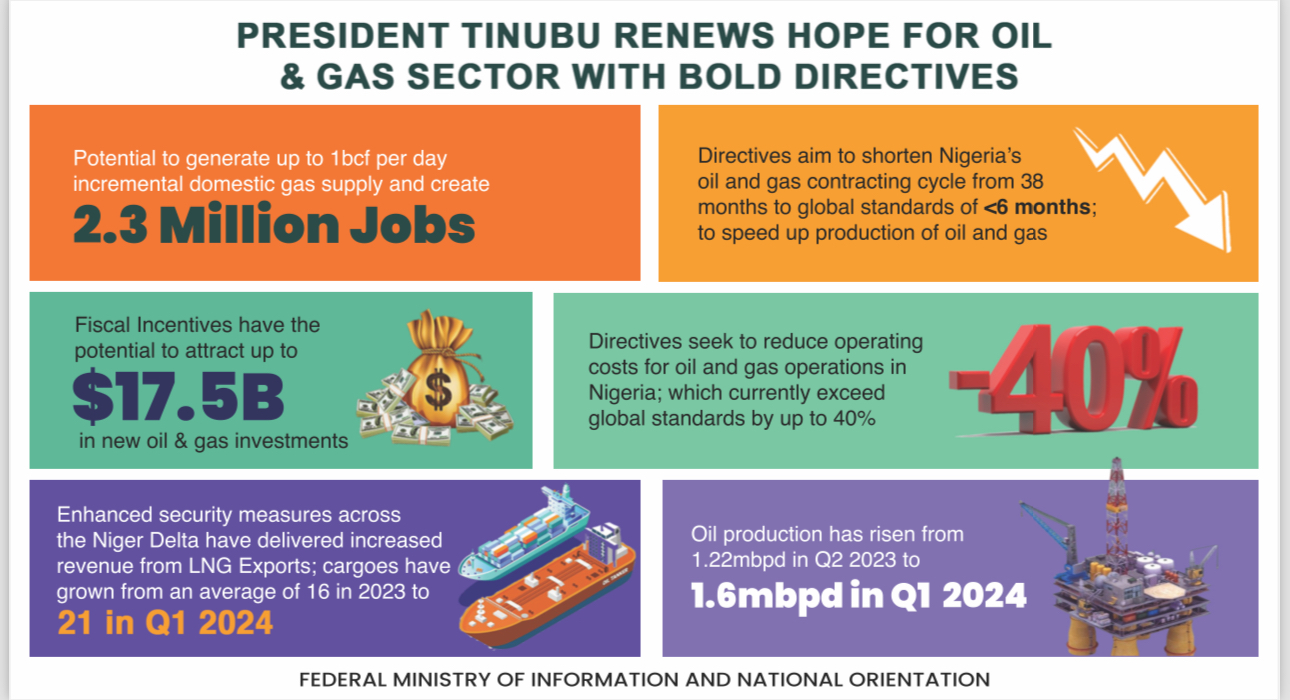
SENATE PASSES ELECTORAL AMMENDMENT BILL

He added that the bill is meant to identify criteria for substitution of candidates, limits of campaign expenses as well as addressing problems related to the omission of names of candidates or logo of political parties.
The Chairman also explained that, prior to the clause-by-clause consideration of the bill, some observations of the President were considered, adding thus, “Clause 4, amends Section 18 of the Principal Act which deals with erroneous cross-references made in the Bill that was sent earlier for assent.
“Clause 10, amends Section 36 (3) of the Principal Act that deals with qualifying language. “Clause 14, amends Section 49 (4) of the Principal Act that deals with the failure of a card reader.
‘Where a smart card reader deployed for accreditation of Voters fails to function in any polling unit and a fresh card reader is not deployed 3 hours before the close of the election in that unit, then the election shall not hold but be rescheduled and conducted within 24 hours thereafter, provided that where the total possible votes from all the affected card readers in the unit or units does not affect the overall result in the constituency or election concerned, the commission shall notwithstanding the fact that a fresh card reader is not deployed as stipulated, announce the final results and declare a winner.
“Clause 24, amends Section 87 (13) 0f the Principal Act that deals with the issue of a deadline for primary election. The dates of the Primaries shall not be earlier than 150 days and not later than 90 days before the date of the election to the elective offices.”
He also explained that the same section stipulates a specific period within which political party primaries are required to be held since the unintended consequences left Independent National Electoral Commission(INEC) with only nine days to collate and compile lists of candidates and political parties for the various elections.
“This is because the earlier Electoral Act Amendment Bill did not properly amend Sections 31, 33 and 85 of the principal Act that stipulate times for submission of lists of candidates, publication 0f lists of candidates, notice of conventions and congresses tor nominating candidates for elections.
“Clause 32, amends Section 140 (4) 0f the Principal Act that deals with the omission of the name of a candidate or logo of a political party.” The other sections of the main electoral act that were amended are 31, 33, 34, 38, 44, 67,76, 78, 82, 85, 87,91, 99, 112, 120,138, 143, 151, and the Schedule.
Penpushing reports that, the Senate during the clause-by-clause consideration of the bill, resolved to set campaign spending limits for senatorial elections at N250 million and N100 million for House of Representatives.
It is recalled that the President announced the rejection of the bill on September 3 due to “some drafting issues” that were unaddressed by prior revisions, as made known by his aide, Ita Giwa at that time
“Mr President invites the Senate and House of Representatives to address these issues as quickly as possible so that he may grant assent to the Electoral Amendment Bill,” Ita Enang, was quoted in a statement then.
Penpushing reports that Buhari’s refusal to assent the bill made the National Assembly Joint Committee on the Independent National Electoral Commission (INEC) to reconvene and deliberate on the bill for the fourth time.
\





